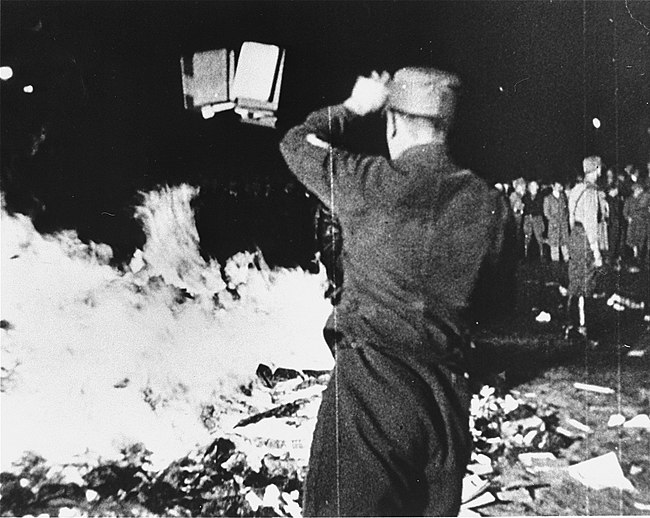Yesterday, October 10, 2019, I wrote a Facebook post, that arose in my mind from Trump’s decision to turn his back on the Kurdi fighters who helped us “win” the war against ISIS. Knowing that many Republican (GOP) Senators condemned the President for that, I ended my post with these words:
So, now what GOP Senate? Do you see what happens when you turn your back to “minor” “flaws” in character of this President? He is totally unfit for the office which he has abused and denigrated. While some of us were dubious at the inauguration, there has now been abundant, repeated on-camera evidence that he is out of his depth and totally incompetent ….
GOP Senate: Will you continue to turn your back on your duty? Will you not see that he has long since crossed the threshold? Will you not grab the FACTS of the “Ukraine phone call” and stop telling me to read the “transcript”? I have read the transcript. I have read the pages of email exchanges released from the hearings between our diplomats proving the corrupt intention. And it is abundantly clear what was said. And it is clear what your duty is.
We are told that many GOP Senators dislike the President personally. We are told that many of them feel he lacks good judgement. In my view there has been, in the words of the Declaration of Independence, “a long train of abuses.” I only agree with about half of the impeachable offenses that some groups have put together. But given at least some of those offenses, with the culmination of the ”smoking gun” telephone conversation with the Ukrainian President, and the Republican anger about abandoning the Kurdi fighters, why has not one Republican US Senator stood up to support impeachment?

The answer given by political analysts is that the GOP Senators are afraid of not being re-elected. Afraid of political retribution from Trump or of being the target of one of Trump’s Twitter hate messages. Afraid of being one of the first to “turn” and likely be trashed by Senate Republican leaders and colleagues.
In short, each individual Senator is facing a question of moral courage.
An editorial in the October 10, 2019 edition of the Washington Post zeros in on one of these, Sen. Joni Ernst (R-Iowa). The first part of the article tells how Sen. Ernst refused to specifically answer a constituent at a Town Hall, and later a reporter, who asked if she thought asking foreign governments for help to win a US election was wrong. (In fact it is illegal for foreign governments to contribute to a US election campaign.) The article goes on to say about Ernst:
Ernst is symptomatic of the Republicans who have capitulated time and again to Trump, even when the stakes are extremely high. Her cowardice in refusing even to reveal her position on a fundamental constitutional matter suggests she sees herself as a minion of the president, not as the state’s voice. She is one of many invisible enablers of Trump, one who has abandoned her role as a member of an equal branch of government. She is not the worst of Trump’s apologists, but precisely because she in all likelihood knows better, her failure to put country and principle above partisan loyalty and desperation for reelection reminds us that the entire GOP has lost its will and its conscience at the altar of Trump. Iowans should hold her accountable in 2020.
https://www.washingtonpost.com/opinions/2019/10/10/every-republican-ballot-should-face-kind-scorn-heaped-ernst/
Moral courage is the willingness to stand up for what is right, even if you know your peers oppose your “standing up.” Restating it, it is standing up to peer pressure.
I respect those who take actions that require moral courage, even though I am not always sure of what I would do. And, I have no worries condemning US Senators who are moral wimps (even though I can only hope I’d have the courage to oppose my political party if I were in their shoes).

Manchester, MA police:
https://www.facebook.com/pg/
ManchesterByTheSeaPD/posts/?
On the other hand, it is more difficult to condemn a teenager who knows full well the identity of a peer that is wanted by the police as a robber, yet will not stand up and do something about it. Yes, I’d like to say, “If I were you, I would get several others of my peers to join me, and tell the kid to turn himself in or else after 24 hours, you would be turning his name over to the police.” But I am not “you.”
John F. Kennedy, just before running for US President, wrote a book called, Profiles in Courage, a series of stories about politicians who “did the right thing” even though opposed by many peers. I bet he found it easier to write about others, than to be consistently “courageous” while in office.
Here is what I am getting at: It would be much easier to encourage teenagers to exercise moral courage if more adults did. Like those Republican Senators.
Why Moral Courage is Necessary

What’s the first thing that comes to mind when you hear about a pile of burning books in public? For me, it is the documentaries or films on the rise of Nazi power in Germany.
It was in 1933, the same year that Hitler’s Nazi Party secured full power of the German Government, that the Nazi dominated German Student Union, organized book-burning events at 34 universities across Germany. Meanwhile, Hitler’s down-and-out followers who had organized into violent clubs and become known as the Brown Shirts, had, with physical beatings, increasingly frightened the general population into going along with Nazi-dominated organizations like the German Student Union. White German nationalism was a clear part of the Nazi belief system. Even while more and more people in all age groups and economic levels increasingly embraced it, most misunderstood and ignored it’s dangers until it was hard to exercise moral courage without physical danger. The young are often more passionate about almost anything. So, …
German university students were among the vanguard of the early Nazi movement, and in the late 1920s, many filled the ranks of various Nazi formations. The ultra-nationalism and antisemitism of middle-class, secular student organizations had been intense and vocal for decades. After World War I, many students opposed the Weimar Republic (1919–1933) and found in National Socialism a suitable vehicle for their political discontent and hostility.
https://encyclopedia.ushmm.org/content/en/article/book-burning
From the early 1920s, as the Nazis spread their dogma and slowly established its grip on the institutions and communities of Germany, through the year of transition to power in 1933, until the final defeat in 1945… words and actions of moral opposition to neighbors, family members, and peers at work and school who accepted Nazi beliefs became more complicated and required GREATER courage with each passing year. The final result was the Holocaust and a war involving 100 million people from 30 countries.
Anyway, book burning gets my attention.
So when I read that college students at Georgia Southern University on October 11 gathered books by a visiting novelist, Jennine Capó Crucet, and burned them in protest, it struck a nerve. It was covered in the Washington Post, but they borrowed heavily from the student newspaper on campus. The theme of the novel was to show the impact of living as a minority in America and how that compares with white privilege. Reaction from protestors (who may or may not have read the book), via Twitter included, “race is bad to talk about,” and “@crucet are you usually that racist or were you putting on a front to promote your pointless and shitty book at my college? just a question. work on your ignorance and racism towards white people.”

Interestingly these were largely college freshmen. Teenagers. A majority of students were engaged and interested in Crucet’s talk, but a few reacted with anger… reflecting a similar vein of the white nationalism felt by the instigators of the 1933 book-burnings in Germany.
Of course there is a major difference. In Germany, tens of thousands of people were participating across 30 campuses as part of planned nationalist ceremonial events, and 25,000 books by hundreds of authors (in just one city) were destroyed. At this Georgia school, an impromptu gang of probably not more than a handful of active participants burned a few copies of one author’s titles.
On the one hand, verbalizing one’s disagreement with an author, or even burning her books, is free speech protected by the first amendment. On the other hand, some actions can cross the line from uncomfortable to intimidating.
Myths and lies at the heart of bigotry must be refuted, or they continue to spread from person to person until it is no longer about free speech but about violence. Anonymous tweets are probably not useful. Name-calling and the like is not useful. Moral courage requires factual, knowledgeable, yet sympathetic communication (free speech!) in reply – at a minimum.
Which comes back to moral courage. On the part of campus faculty and administration. On the part of student peers. One must stand up. Speak up. I am not talking about counter-demonstrations (although positive demonstrations have their role in promoting just causes), but one-to-one, multiplied a million-fold, will remove the oxygen for the spread of hatred, even though it will not eliminate all haters.
What did some of the book-burners’ “friends” do as they stood around and watched? Did they laugh nervously? Did they join in half-heartedly?
Or did they challenge the “offended” student with the question? “Hey, Crucet just told us about her personal life experience. What personal experiences have caused you to be upset by what she said?” Or anything else that signals disagreement but also listening.
Moral Courage is important because silence and inaction allows myths and lies to grow and to blossom into hatred, into fear, and ultimately into violence.
But, again: It would be much easier to encourage teenagers to exercise moral courage if more adults did. Like those Republican Senators who have not stood up to Trump’s moral bankruptcy for 3 long years.
Because the bigotry he promotes is no different than what a few students at Georgia Southern University tried to promote.
Speaking Out (as an American) Against Tyranny in China and Hong Kong.
One American tweeted support for the Hong Kong protestors, exercising his free speech. You wouldn’t think that would be much of a big deal. A pebble falling into the mid-Pacific.
BUT – The tweeter was the General Manager of the Houston Rockets, an NBA team with a long-standing special relationship with Chinese fans … and supported with Chinese money, so it became a huge issue between the Chinese government (and fans?) and the NBA. A history of the events: https://www.cbssports.com/nba/news/nba-china-issue-latest-news-resulting-from-daryl-moreys-hong-kong-tweet-what-it-means-for-the-league/
China, which has increased control over all aspects of Chinese life during the administration of President and Chairman Xi, did not approve and retaliated in a number of ways with respect mainly to the Rockets but also making it clear that the damage could impact all of the NBA. (See the CBSSports link above).
It is an American idea that, while a team as a business entity will typically be neutral, its individual players, owners, and managers are free to express their own opinions on current events. Even that view has had rough going inside the USA (consider the case of Colin Kaepernick and the SanFran 49ers).
ISSUE: There are many, many current examples of how the Chinese government and its agents can use its leverage on westerners (and Chinese citizens traveling or studying abroad) to silence and/or punish its critics. There are clearly consequences for criticizing Chinese imperialism in the South China Sea, human rights violations against the Uighurs, Beijing’s reduction in Hong Kong democratic institutions, Chinese worldwide commercial projects designed to create debtor servitude from third world countries, and general lack of freedom of expression within China. How to respond?
• An American (or other westerner) has the “freedom” to publicly criticize, but China may extract a price if it has the leverage to do so. On the other hand, unless it is part of a large number of people expressing the critique, what impact is there? And even then?

• Optionally, westerners can continue trying to develop individual personal relationships which are possible when there is a significant sports, arts, entertainment, and commercial exchange. On the other hand, the price for developing these relationships is most often the silence of the westerner (at least publicly).
• It is the Chinese citizen that faces the greatest threat from criticizing his/her government.
Balancing free speech and hate speech: One writer’s examples and opinions
Recommended— https://www.nytimes.com/2019/10/11/opinion/democracy-free-speech.html?
